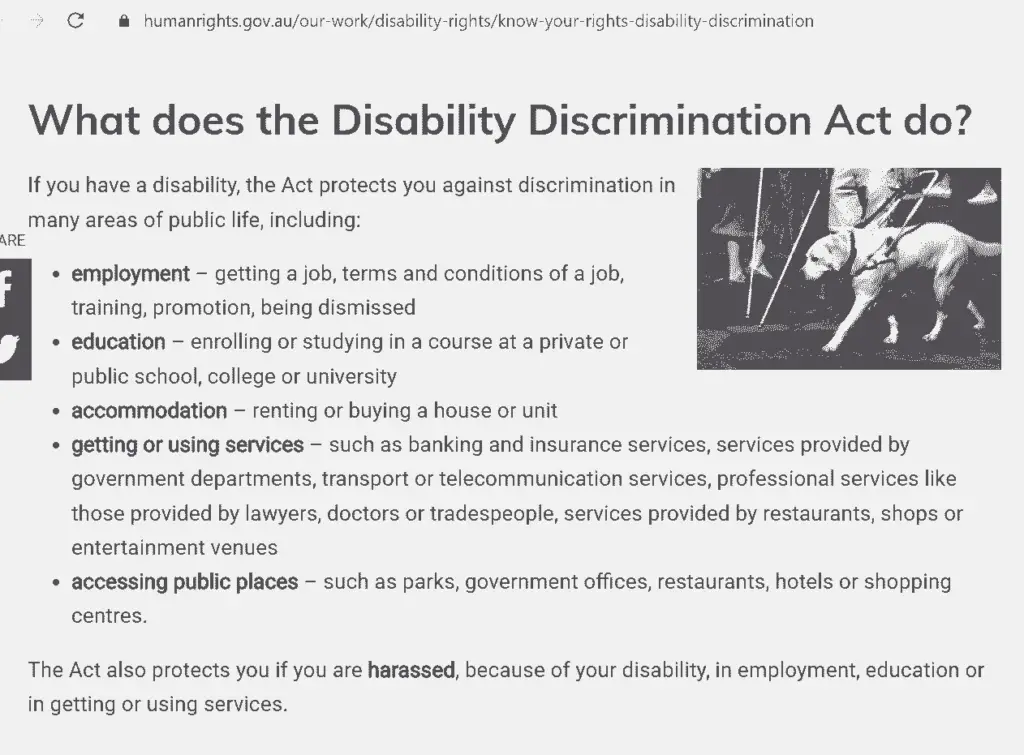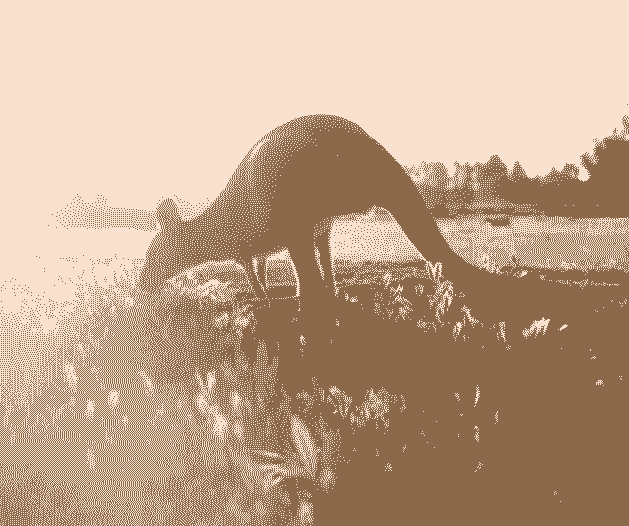If you are a disabled Australian person and want some information about whether your rights will be protected, you are in the right spot. As a disabled person who was never protected by these laws, I’d like to tell you how little real world justice you will actually get in Australia.
You need to know how little protection you actually have as a disabled person in Australia
In my opinion, the Australian Human Rights commission is an absolute joke, a corrupt organization that will pick and choose individual case to pursue based on factors that ironically discriminate against Australians. Don’t worry, this post isn’t just a massive winning session about how bad the human rights commission is, the bottom part of this post talks about what the AHRC does and why.
What is the role of the Australian Human Rights Commission in relation to complaints?
Why are human rights important in Australia? Well, they (human rights) are not important at all, and I would associate that with how cowardly and selfish the Australian people are in general. The ”she’ll be right” attitude is applied when some of the worst human rights atrocities happen in Australia, all the time. But when the Australian people want to get angry about something, it’s usually because they have been manipulated by the mainstream media towards something or someone (more common).
My experience with the Australian human rights commission:

There are many, hell, I don’t know what these things are, laws? Rules? Made up things that don’t mean anything? Who knows, I don’t think the people who work at the Australian human rights commission even know, because none of these things are enforced. Without some form of justice or punishment for breaking these made up rules, they are worthless. I won’t waste too much time on my story, I’ll just give an overview here.
At my government job (which you would think they have more rights than an average job) I became disabled. My quality of work was in the top 1%, I was a high achiever who worked very hard on doing the best I could in every way. Never received a warning letter, never did anything wrong, was never reprimanded, I had a perfect record and no one would deny that.
They fired me for no reason other than I was disabled and the Australian human rights commission did NOTHING, in fact they ignored my complaints, and ”forgot” to give me the correct information.
That’s pretty much it, I could write a book on what I went through, and maybe I will in the future. But if you are a disabled person in Australia, make sure that you prepare for all outcomes, because this human rights commission will most probably fail you the way they failed me.
Does the Australian Human Rights Commission Even Promote Human Rights?
How Does, (if it does at all) the Australian Human Rights Commission Promote Human Rights?
The Australian Human Rights Commission is tasked with promoting and protecting human rights in Australia. How does it fulfill this mandate? And what does the human rights commission acctually change at all, for you when the AHRC makes a statement about human rights in Australia? Find out in this article.
The Human Rights Commission in Australia (AHRC) was established by the Australian Parliament in 1986. Its mission is to protect and promote human rights and equality, especially on race. It deals with complaints of discrimination and has an active role in developing public awareness of human rights issues.
The Human Rights Commission’s main goal is to protect and promote human rights in Australia. They do this by providing the tools, resources, and expert guidance for the community to speak out about their issues and concerns — providing a voice for those who have none.
Humans have the right to the highest attainable standard of living. The Human Rights Commission stands for these rights and proclaims them for all humans, so that we may have access to equality, freedom from discrimination and freedom from slavery: and that general wellbeing will be possible.
Social Inequality in Australia
Indigenous Australians have a staggeringly high rate of imprisonment — more than 10 times that of non-indigenous Australians. Part of this disparity between demorgraphics is due to the fact that indigenous Australians are over-represented in all types of criminal activity, including minor offenses. Additionally, the health conditions of indigenous populations in remote areas remain quite poor, particularly infant mortality and life expectancy.
Australia’s most important human rights institution is the Australian Human Rights Commission. It was established by the Australian Parliament in 1986. It has the power to bring court cases on behalf of complainants and to report on human rights issues to Parliament.
The Commission consists of a President (who is also the Race Discrimination Commissioner) and five other members appointed by the Governor-General in Council. The President and five other members are appointed by the Governor-General in Council for a fixed five-year term.
What Does The Human Rights Commission Do?
● Investigating and conciliating complaints of discrimination.
● Preparing reports on various human rights issues, including those affecting the Indigenous population, women and the lesbian and gay community.
● Developing and promoting strategies to prevent discrimination.
● Providing education programs and other services to help prevent discrimination and to promote human rights awareness.
● Publishing submissions and organizing community forums on human rights issues.
It is independent from the Government and does not receive any public funding. It is funded by policy-related activities such as conferences and symposia. It works closely with the United Nations, national human rights institutions around the world, national governments and different groups in Australia. The Commission’s activities are not limited to dealing with individual complaints. It also works constructively with other interested parties to develop responses to discrimination and to promote human rights as a whole.
Australia’s Federal and State governments work every day to promote diversity, inclusion, and equality. A large number of government bodies are wholly or partially responsible for protecting human rights in the country — no other single country is more diverse! The Australian government has four main responsibilities: upholding civil liberties and individual freedoms; maintaining a fair electoral system; delivering public education through institutions such as the ABC; and helping coordinate emergency services when people need them most.
Australian Human Rights Commission
The Human Rights Commission, together with the United Nations Human Rights Council and other bodies, has been influential in shaping the legal framework for human rights protections in Australia. Owing to the influence of the Commission, and the way the statutes it relies on are constructed, it is probably the most important human rights body in Australia.
To find out about the services and activities of the Human Rights Commission and its support for the community’s right to social participation, visit them online at www.humanrights.gov.au.

